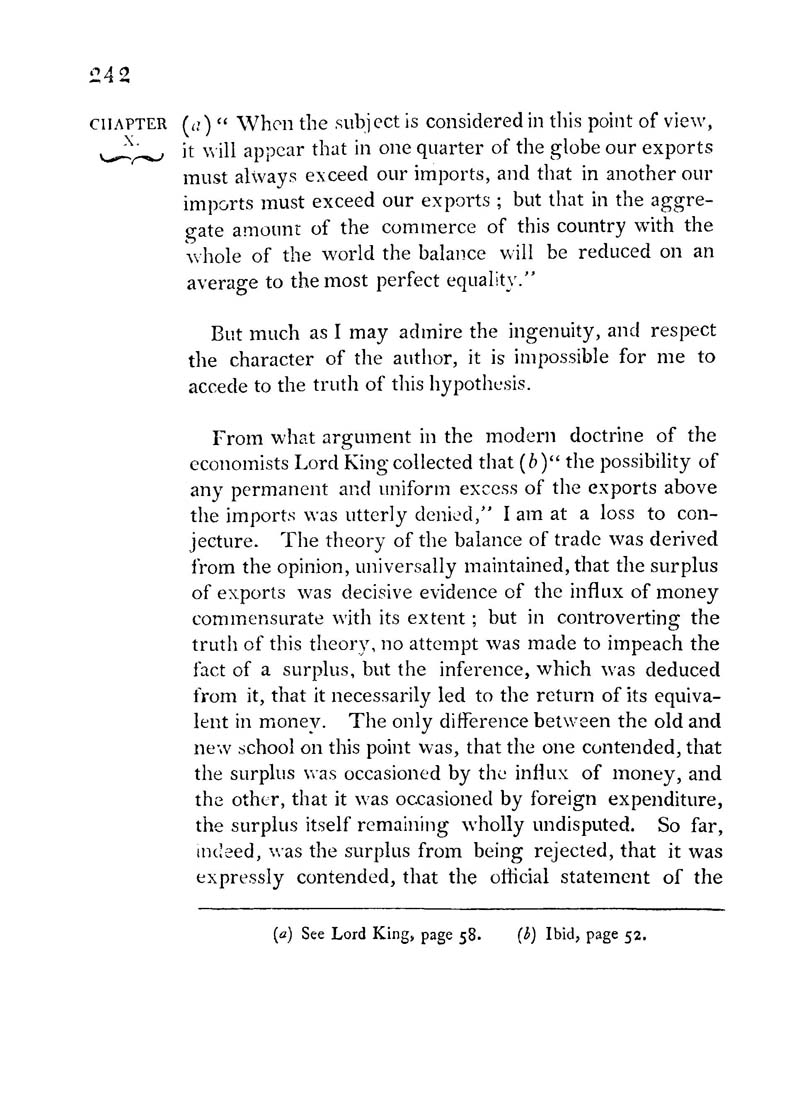242
X.
CHAPTER (ii) ^' When the subject is considered in this point of view,
it will appear that in one quarter of the globe our exports
must always exceed our imports, and that in another our
imports must exceed our exports ; but that in the aggre¬
gate amount of the commerce of this country wTth the
whole of the world the balance will be reduced on an
average to the most perfect equality."
But much as 1 may admire the ingenuity, and respect
the character of the author, it is impossible for me to
accede to the truth of this hypothesis.
From what argument in the modern doctrine of the
economists Lord King collected that (6)" the possibility of
any permanent and uniform excess of the exports above
the imports was utterly denied," I am at a loss to con¬
jecture. The theory of the balance of trade was derived
from the opinion, universally maintained, that the surplus
of exports was decisive evidence of the influx of money
commensurate with its extent; but in controverting the
truth of this theory, no attempt was made to impeach the
fact of a surplus, but the inference, which was deduced
from it, that it necessarily led to the return of its equiva¬
lent in money. The only difference between the old and
new school on this point was, that the one contended, that
the surplus vras occasioned by the influx of money, and
the other, that it was occasioned by foreign expenditure,
the surplus itself remaining wholly undisputed. So far,
indeed, was the surplus from being rejected, that it was
expressly contended, that the official statement of the
{a) See Lord King, page 58. (b) Ibid, page 52.
|








